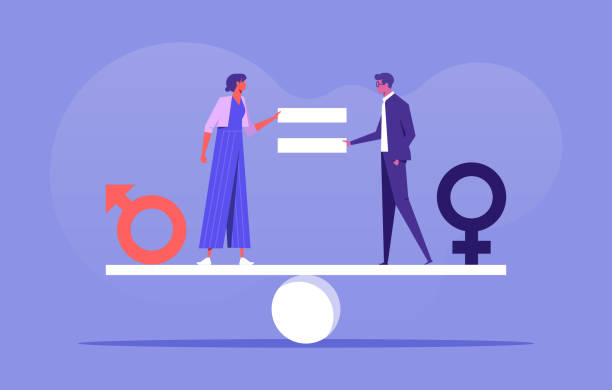In modern society, the idea of gender equality is a watchword. In addition, due to ideas regarding sexual diversity, displays and expressions that separate men and women are now being avoided. So, although physical differences between the sexes are inevitable as living beings, are the psychological differences between men and women decreasing?
Naturally, the more gender equality advances in society, the more ideas of “masculinity” and “femininity,” including in regards to clothing and personality, will fade from people’s minds. But when you look at the real world, it’s like the total opposite is true. The Karolinska Institutet in Sweden has published the results of a study which shows that the higher the standard of living and the more gender equality there is in a society, the more gender differences in personality traits and cognitive patterns appear to be strengthened.
This is known as the “gender equality paradox.” It is said that 30-50% of an individual’s personality and psychology can be explained by genetics, while the remaining 50-70% is formed later in life by their upbringing. It has also been found that cognitive function is influenced not only by genes but also by whether or not one has received compulsory education and the size of one’s family. For this reason, it is believed that people’s personalities and thoughts are likely to be influenced by a country’s standard of living and social conditions.

So, in countries where the average standard of living is high and the ideas of gender equality and not distinguishing between men and women are advanced, are gender differences really narrowing because of changes in how men and women behave? If we follow our intuition, as gender equality in social environments progresses, we might predict that the personality traits and cognitive patterns of men and women in that society will also become more similar. However, some previous studies have reported that the more gender equality a country has, the greater the gender differences in psychological characteristics, including personality.
This is termed the “gender-equality paradox” because, despite society becoming more equal, the gap between men and women is unexpectedly expanding. However, there is not much research being done on this gender equality paradox, so it is unclear how robust it is. The research team, therefore, undertook a comprehensive re-examination of whether this gender equality paradox is actually a phenomenon occurring in modern society.
In this survey, 54 previous studies were reviewed that examined the relationship between “social living conditions” and “gender differences in the psychological characteristics of men and women.” The countries surveyed were primarily European but also included India and Kenya. The psychological characteristics investigated included individual personality traits and cognitive patterns (judgment, imagination, etc.), interpersonal relationships (preferences in appearance and domestic skills, sexual behavior, etc.), mental health, and preferences for STEM education.
Data analysis showed that gender differences in partner preferences, sexual activity, and the proportion of men and women choosing STEM education tended to be smaller in developed countries with higher standards of living. Regarding sexual behavior, for example, it has been shown that men and women tend to have more casual sexual relations in developed countries. Researchers speculate that this is because there are more contraceptive methods available in developed countries, which makes women more casual about sex. As for STEM education, it is believed that this is due to the increased gender equality in society, which has resulted in more opportunities for women to freely study the subjects they are interested in.
However, when it comes to personality traits and cognitive patterns, the gender differences tend to be greater in societies with higher average living standards and greater gender equality. Looking at personality traits, the more gender-equal a society is, the higher men’s scores are in narcissism, impulsivity, and perseverance, while women’s scores are higher in agreeableness, extroversion, and altruism. To give a simple example, men tend to be more likely to express anger openly, while women tend to be more likely to express emotions such as sadness openly. Also, men are generally less shy, but women tend to be a bit more reserved.
In terms of cognitive patterns, women also scored higher than men in episodic memory (personal memory of specific events or experiences) and verbal ability. Based on these results, the team concluded that in terms of individual personality and cognitive patterns, increasing gender equality could well give rise to a “gender equality paradox.”
While it is difficult to say for sure why this is the case, the team speculates that “gender differences in personality arise in response to material needs, not as a result of social roles.” What this means is that “masculinity” and “femininity” are not something that is forced upon people by society’s demands. Rather, when people are in an environment where they are free to choose products that allow them to present themselves in the way they want, men will find value in making themselves more masculine, and women will find value in making themselves more feminine, and so these concepts will be strengthened.
If an area is short on supplies, women may not have access to cosmetics and may have to dress similarly to men, wearing whatever clothes they have on hand. However, if women were able to get their hands on the cosmetics and clothes they wanted and were free to dress however they wanted, it is expected that more women would dress in a feminine way and become more conscious of their own femininity. This also applies to men.
As a result, in countries with a high standard of living, women tend to behave more femininely and men tend to behave more masculinely.